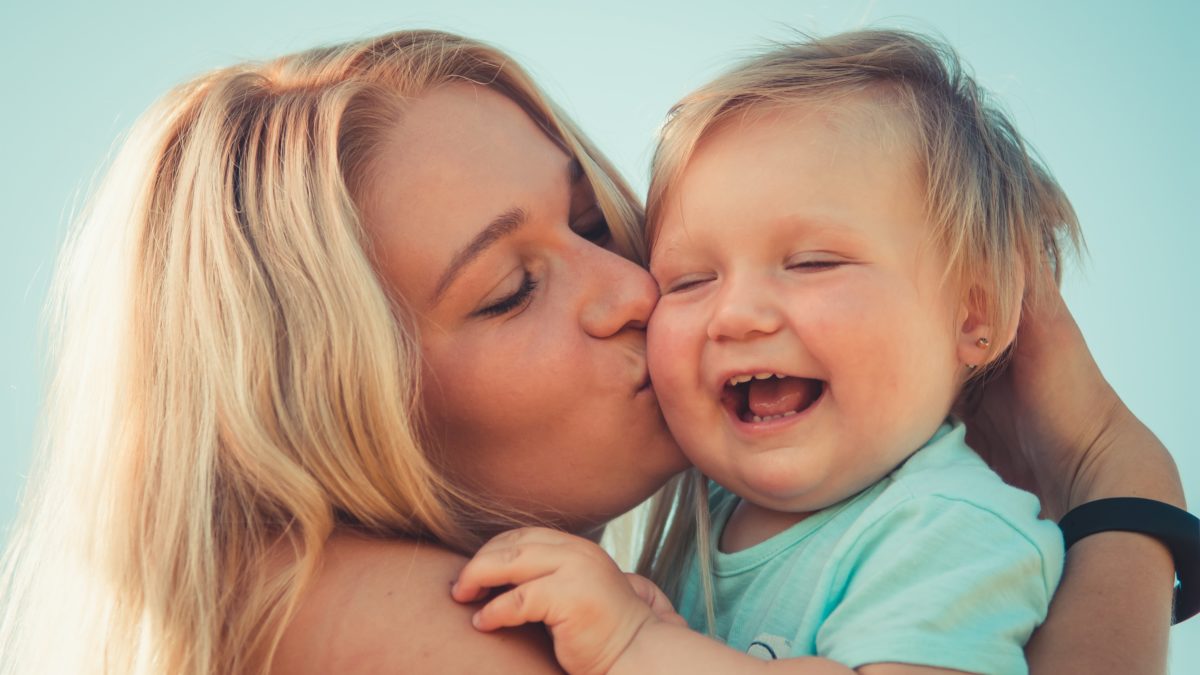Emotional Health Series: 3 Ways to Teach Your Child About Emotions

Helping children build a vocabulary about how they feel has a tremendous impact on their entire lives. As a parent or caregiver, you can integrate learning about emotions into your child’s daily routines, setting them up for success in the long term.
At One Place, all of our preschool programs prioritize social-emotional development. Through nurturing interactions with teachers and peers, children learn how to identify, understand, and articulate their emotions. If you’re interested in learning more about preschool and early childhood education programs, click here.
Why Social-Emotional Competence Matters
As we explored in the first part of this series, a child’s social and emotional health impacts their overall development and ability to learn. When children are socially and emotionally healthy, they develop important behaviors and skills that lay the foundation for their growth—including proficiency in literacy, numeracy, and other cognitive skills.
Parents and caregivers can help advance some of the work that occurs in the classroom at home. The quality of these early experiences and interactions are responsible for a child’s social-emotional foundation—and as a parent, you can implement a few practices into your child’s life to help them learn about emotions and feelings.
Young children experience the same emotions adults do: They get angry, frustrated, happy, embarrassed, sad, nervous, and so much more. Many young children, however, don’t yet have the vocabulary to properly express and communicate their feelings. Instead, they might act out in physical or inappropriate ways. If your child throws temper tantrums or fits, it’s likely due to the fact that they can’t yet identify and articulate their intense emotions.
Opportunities to Teach Your Child About Emotions
1. Provide new vocabulary words.
As a parent or caregiver, start building your child’s vocabulary around their feelings. Many young children see most things as “good” or “bad.” Whenever you hear your child use “good” or “bad” in a sentence when they could use a more descriptive word that adequately describes the situation, try offering your child different adjectives that would fit. As your child begins to understand these new words and build their vocabulary, they’ll be better prepared to explain how they feel.
2. Encourage your child to feel their feelings.
Ask your child how they feel and notice their emotions throughout the day. If your child is facing a challenge or problem, ask them: “How are you feeling?” If they struggle with the language to describe their emotional state of mind, you might say something like, “It looks like you might be feeling frustrated or angry about something.” You can also refer back to your earlier conversations about new words to reinforce their vocabulary.
3. Try new activities to help your child practice.
According to The Center on the Social and Emotional Foundations for Early Learning at Vanderbilt University, there are several activities you can incorporate into your daily routines to help your child understand their feelings—and start to develop empathy for others.
- Read books together. While reading with your child, point out the different emotions that each character experiences. On the pages where a character shows their expression, ask your child: “What do you think they are feeling?” or “Why do you think they feel that way?” Other lines of questioning might include: “Do you ever feel like that?” or “What do you do when you feel that way?”
- Create an emotion book. Another fun activity is to create a homemade emotion book. Organize it by emotions—one section might be dedicated to happy feelings, another section to overwhelming feelings, and so on. Encourage your child to draw things that bring up that feeling—or you might look through magazines or photographs together and identify the particular emotions in each image.
How We Can Help
Learning how to identify, articulate, and describe feelings and emotions is a skill that your child will carry with them throughout their life. To help supplement their learning both in and out of the classroom, we recommend the following resources:
- Preschool Programs: At One Place, we serve over 700 children each year through our preschool programs. We focus on providing children with a warm, safe, and culturally-aware environment to engage in critical thinking, problem-solving, and teamwork. Through this experience, each child’s social-emotional health develops, providing them with the necessary foundation to transition to grade school and beyond. If your child will be 3 or 4 by August 31, apply today.
- Triple P: Triple P Online provides parents and caregivers with a powerful toolbox of ideas and strategies to help raise happy kids, manage misbehavior, set rules and routines, and feel even more confident in your skills as a parent. Plus, you can work through the materials at your own pace—anytime, anywhere. This program is free for North Carolina residents. You can learn more about Triple P here.
- Tips for Teaching Your Child about Emotions: We recommend giving this list a read. Published by the Center for Early Childhood Mental Health Consultation at Georgetown University, it includes a variety of daily and weekly ideas for teaching children about emotions.
- Child Care Programs: If you are searching for high-quality child care programs to support your child outside of the home, we’re here to help. Click here to learn more about our child care programs and how we can help you find the perfect option for your child.
Sources
- https://extension.psu.edu/programs/betterkidcare/early-care/tip-pages/all/talking-with-preschoolers-about-emotions
- http://csefel.vanderbilt.edu/familytools/teaching_emotions.pdf
- https://www.ecmhc.org/ideas/emotions.html#:~:text=the%20upcoming%20day.-,During%20mealtime%2C%20tell%20children%20about%20a%20situation%20that%20makes%20you,to%20understand%20the%20basic%20emotions.
- https://www.startearly.org/post/four-daily-ways-to-teach-your-child-about-emotions/
